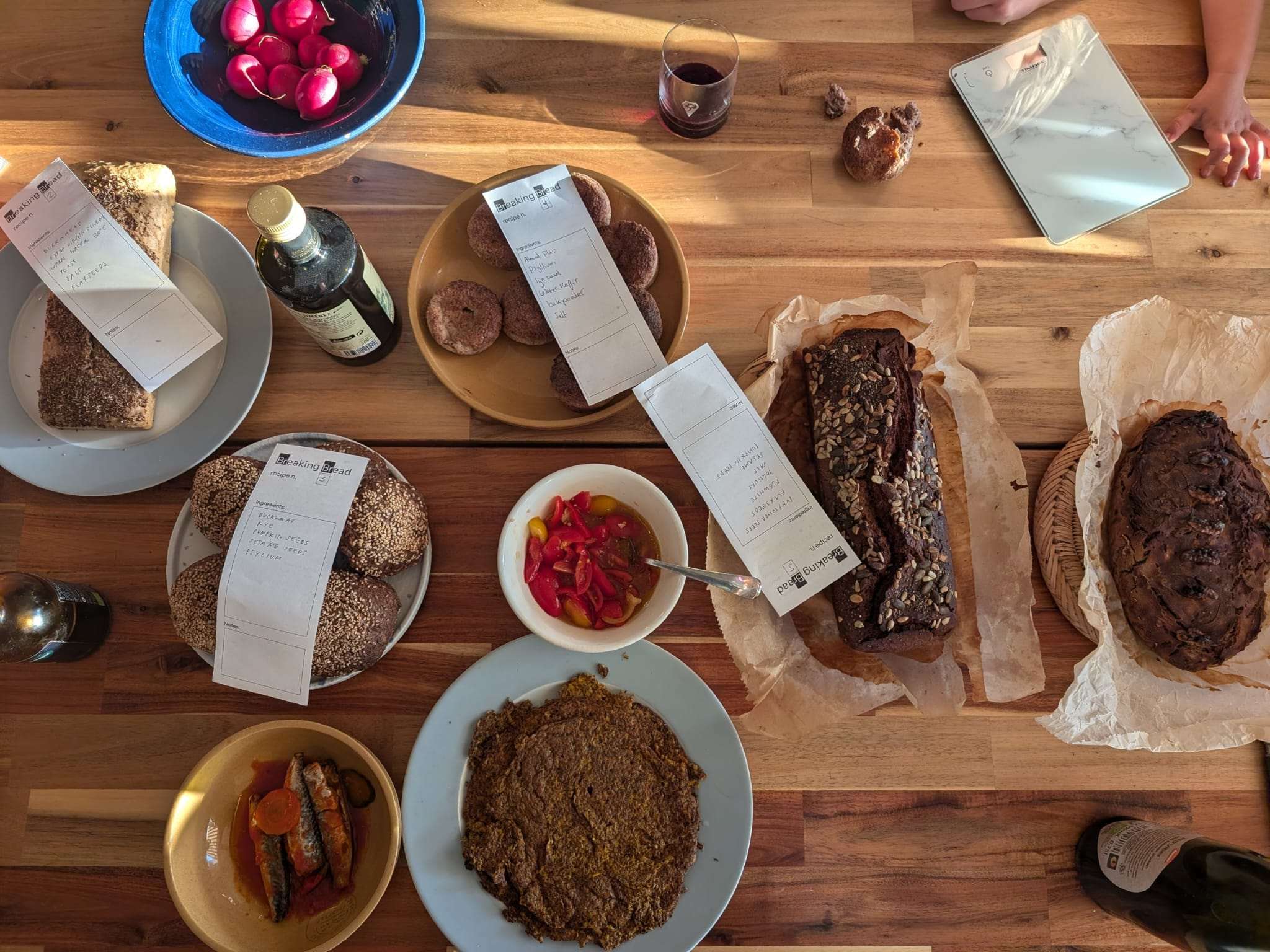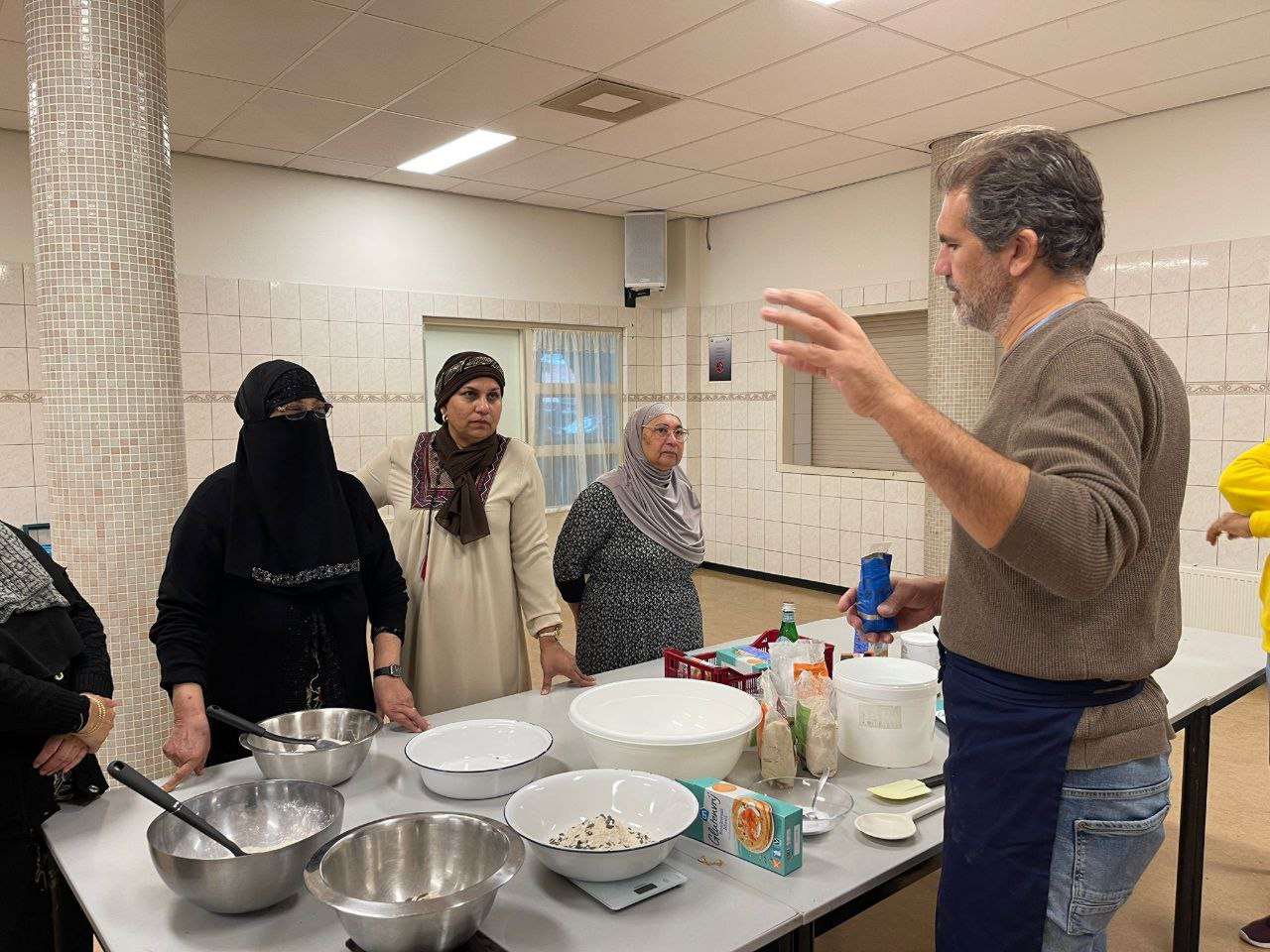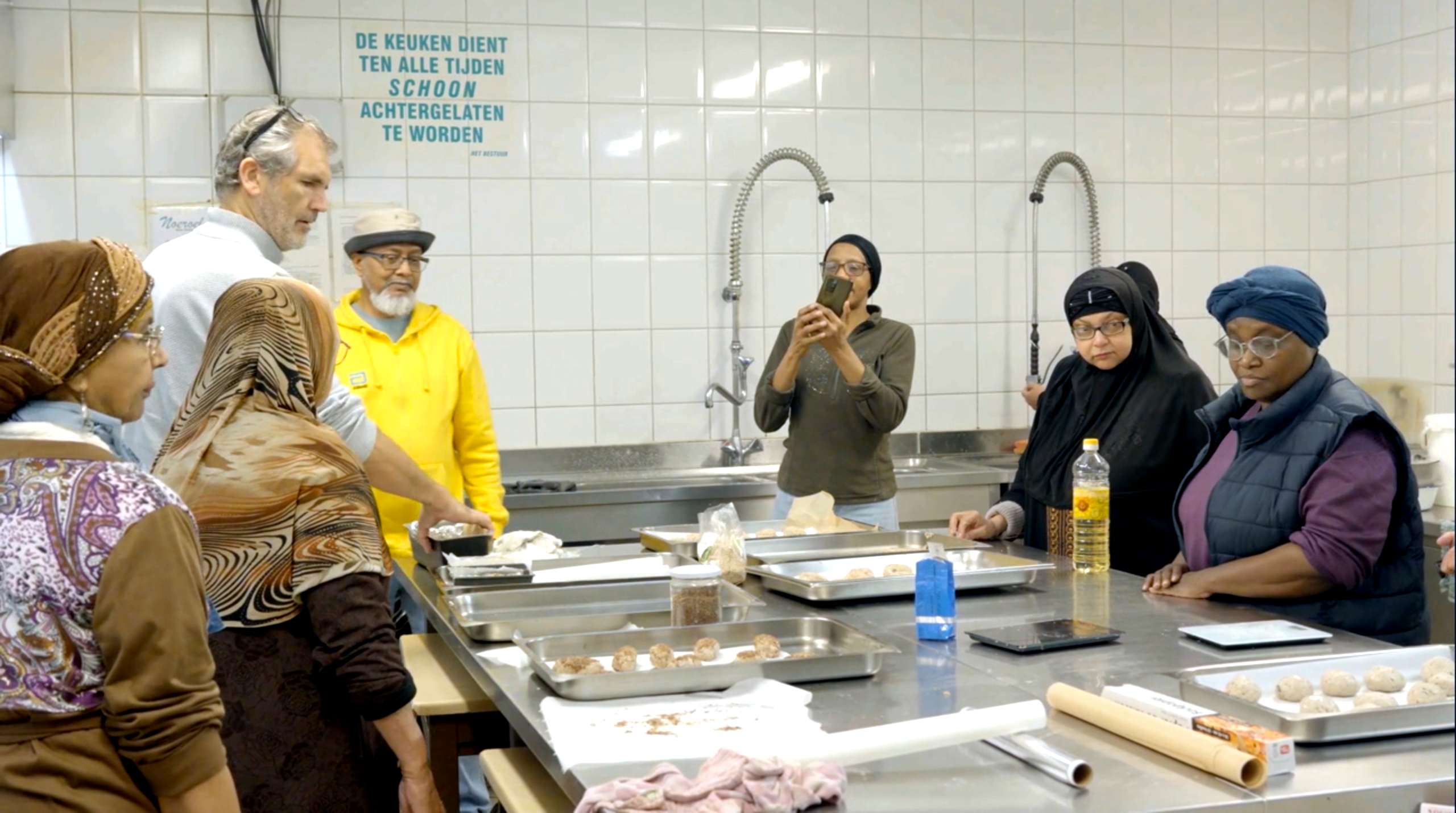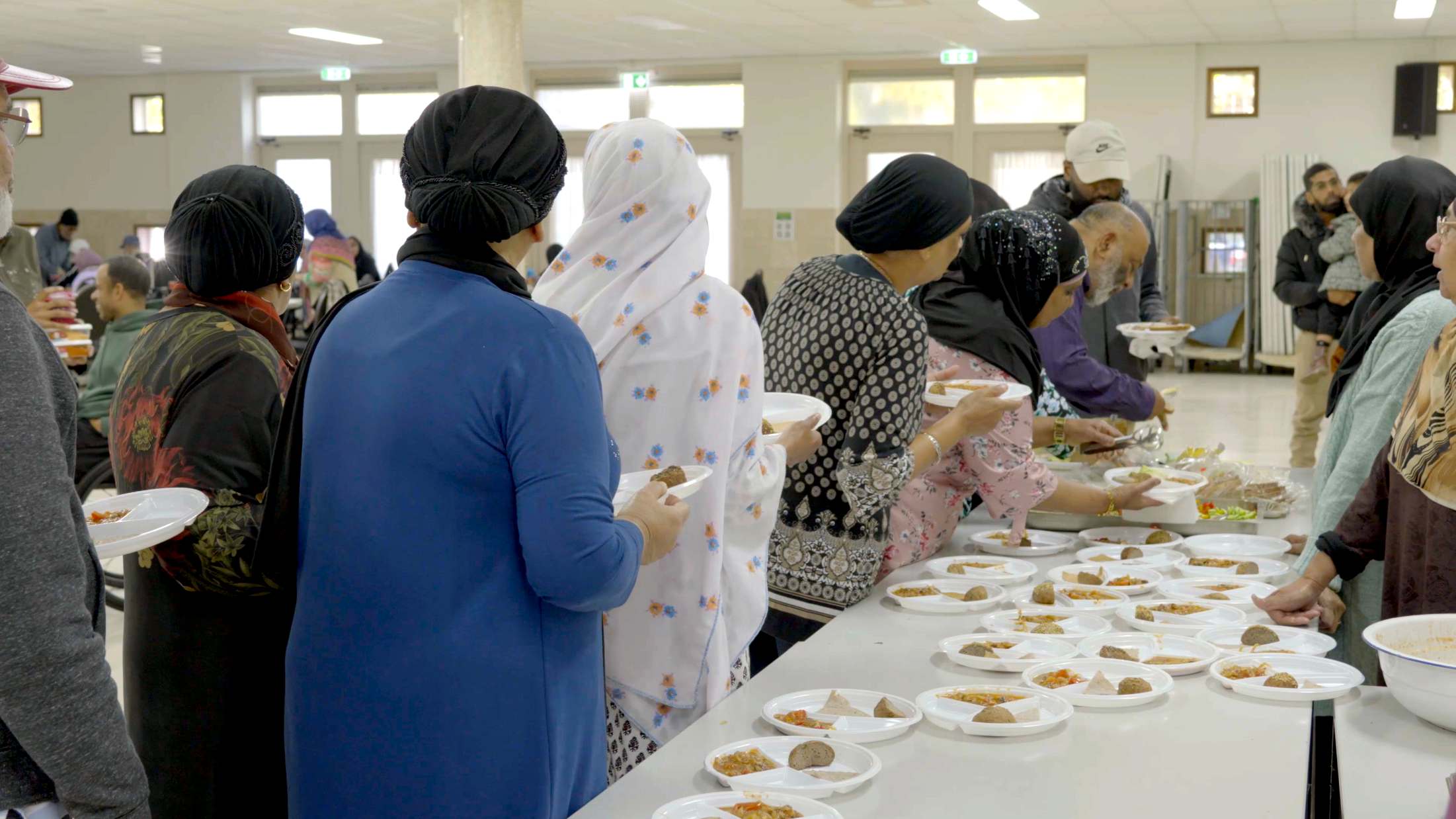Breaking Bread
2024 - ongoing
Breaking Bread is initiated as a bread making workshop in which local residents can gather regularly to bake their own bread, while also providing an entry point for people to get curious about health issues and possible treatments in conversation with health professionals and other experts.
Co-designing activities through alternative needs assessment
Since 2021, the National Diabetes Challenge for People with Migration Background (NDC-MMA) initiated by the Bas van de Goor Foundation, has launched the biggest diabetes prevention program in the Netherlands focused on movement. The program, funded by the WVS, established a network of communities – especially with Hindustan-Surinamese, Turkish, and Moroccan background– also considered the most at-risk groups for developing chronic diseases in the Netherlands. With the collaboration of community-leaders, health professionals, and cultural and social workers, informal needs assessments have been conducted through participatory action research activities. Delving into the community and exploring their needs in such a way allowed to formulate together with them tailor made and culturally sensitive methods of engagement in relation to relevant health issues that can be addressed through a common language both by health professionals and the community. For instance, conversation cards and role-play games around food traditions and hospitality highlighted valuable knowledge existing within the community to cater to their own health needs. During the process it was clear that needs assessments are not neutral, and that evaluating needs also requires participation since very early stages of the intervention design.
During the first months of the Cities for Better Health, a series of pilot activities, engagement tools, and information material has been developed with the collaboration of health professionals, cultural workers and members from the communities. In particular one initiative emerged as a 360 degree package: Breaking Bread, a cooking workshop co organized with the community, creating a suitable social infrastructure for the integration of joint medical consultation into grassroots initiatives.
Breaking Bread as a targeted intervention in The Hague
On the basis of the information collected and through a process of back and forth feedback with the community it was possible to prototype a first lifestyle tool addressing implicit and recurring challenges in communities that are confronting pre-diabetes and diabetes: what to do with high-carbs food staples? Which for many people translates into: what to do with bread? Bread, in many cultures, is not only a dietary staple but it also serves as a plate and or spoon. It is a carrier of food and of social life at the same time. It is now cut and filled, broken and shared, rolled and wrapped, all while being a cheap and readily accessible source of nourishment. However, for people managing or preventing diabetes, there is a widespread recommendation to drastically reduce carb intake, which often means cutting down on bread consumption. In such a context, Breaking Bread is initiated as a bread making workshop in which local residents can gather regularly to bake their own bread, while also providing an entry point for people to get curious about health issues and possible treatments in conversation with health professionals and other experts. In the current phase of the project, we are exploring ways to create a low carb and minimally processed bread, with the help of renowned French baker Michel Caes, founder of the boulangerie Michel in the Hague. He was also involved as a chef in local grassroots food initiatives like Participatie Keuken. Breaking Bread is not only an activity to make bread and neither a dead end series of events where people receive information, but as a 360 degree toolbox it aims at creating a sustainable long term social infrastructure together with the community. In fact the initiative is not immediately presented per se as a diabetes prevention activity, but it rather creates a much needed space for the community to gather and express their needs. Through the process of baking the bread, several questions spontaneously rise: is whole grain flour better than white flour? How long should the bread dough rise and why? Why is my glucose spiking more than other people even if we eat the same slice of bread? Are carbs and sugar the same thing? In parallel, Breaking Bread also constitutes an occasion to reactivate existing infrastructures like hidden kitchens in mosques, schools or wijkcentrums, thus better facilitating a bottom up approach where community members are empowered to self organize and host their own version of the workshop, catered to their own expectations and needs. In the first explorative phase of the project, several cooking workshops have been organized in different locations in order to bring communities together and create new synergies.




Pictures by Hattie Wade
Produced in collaboration with Michel Caes (Atelier Michel)